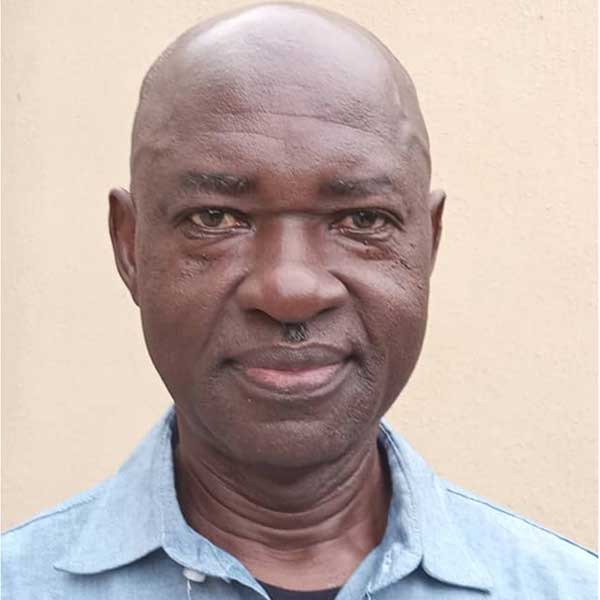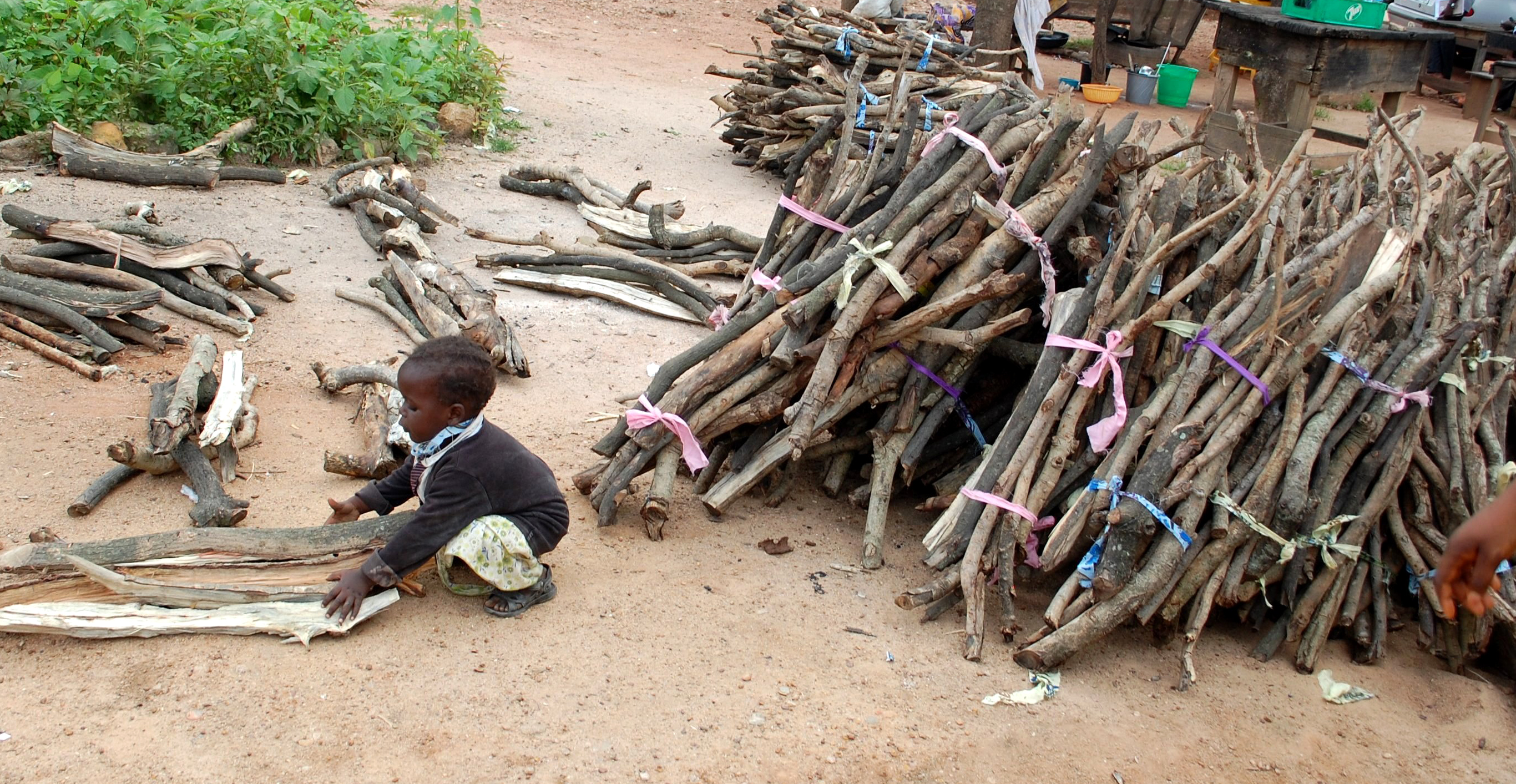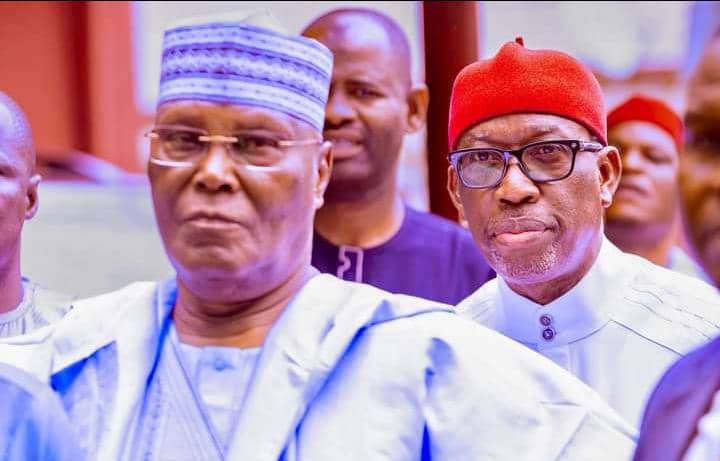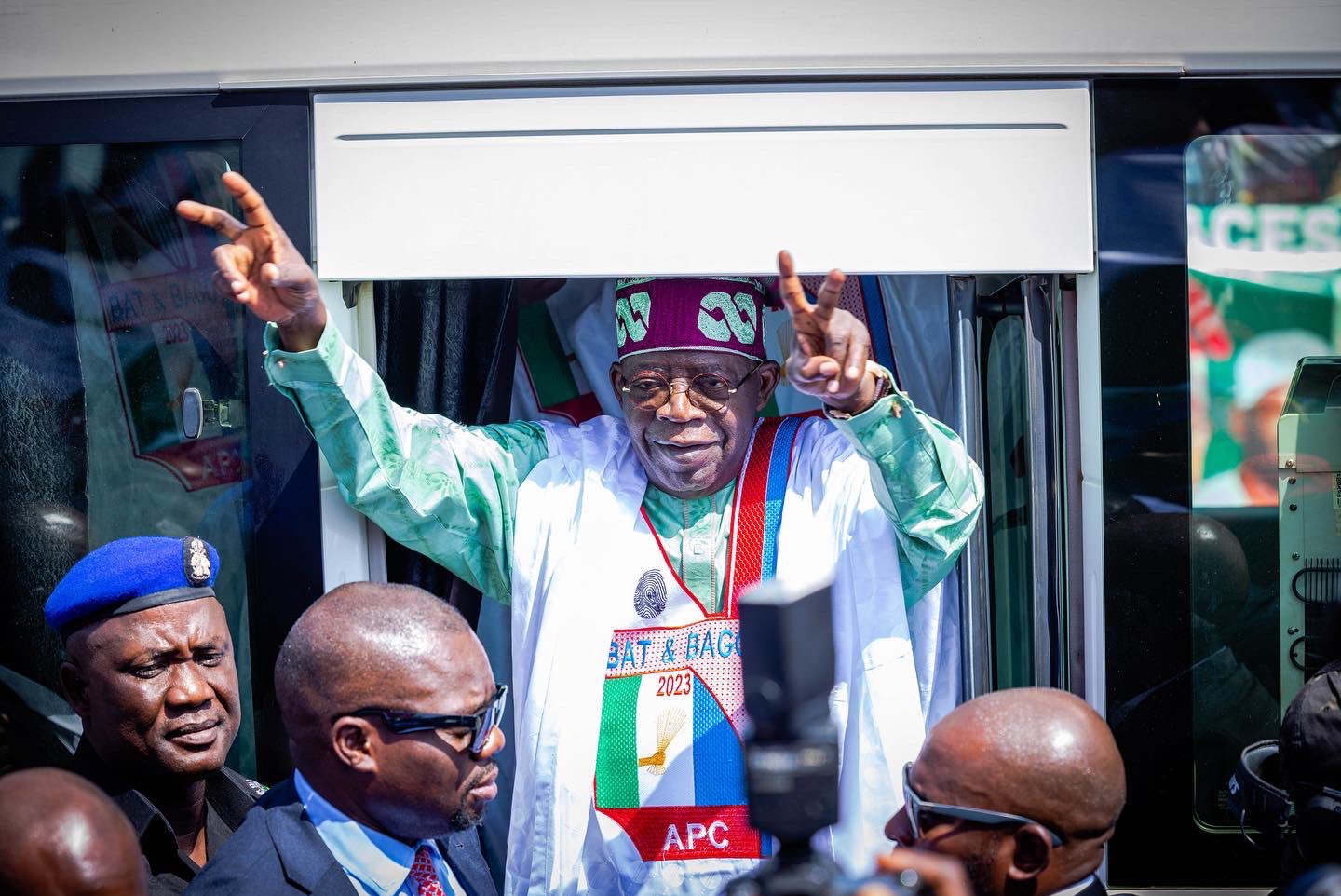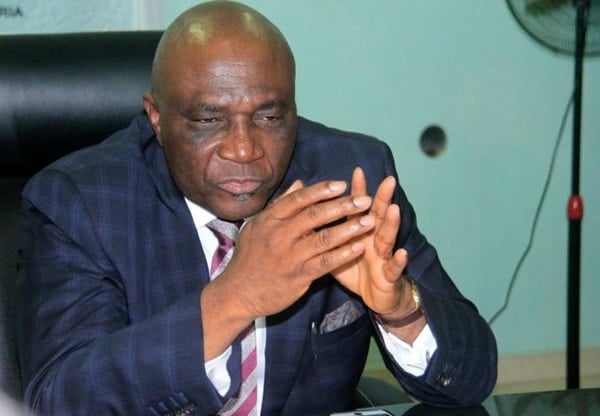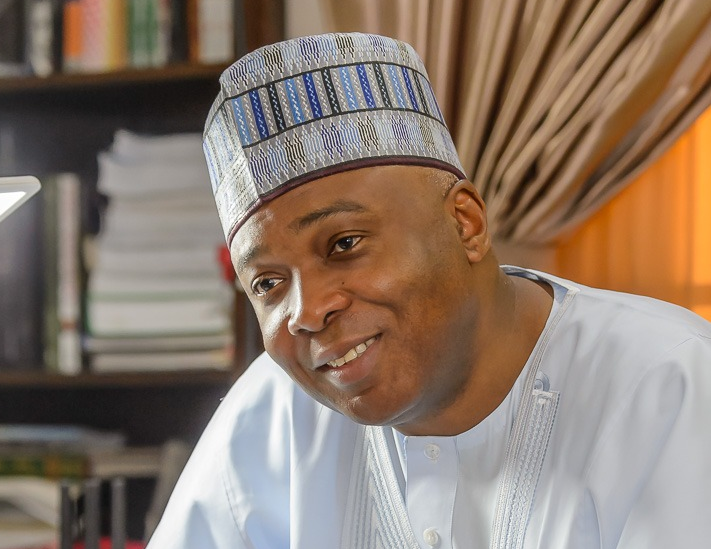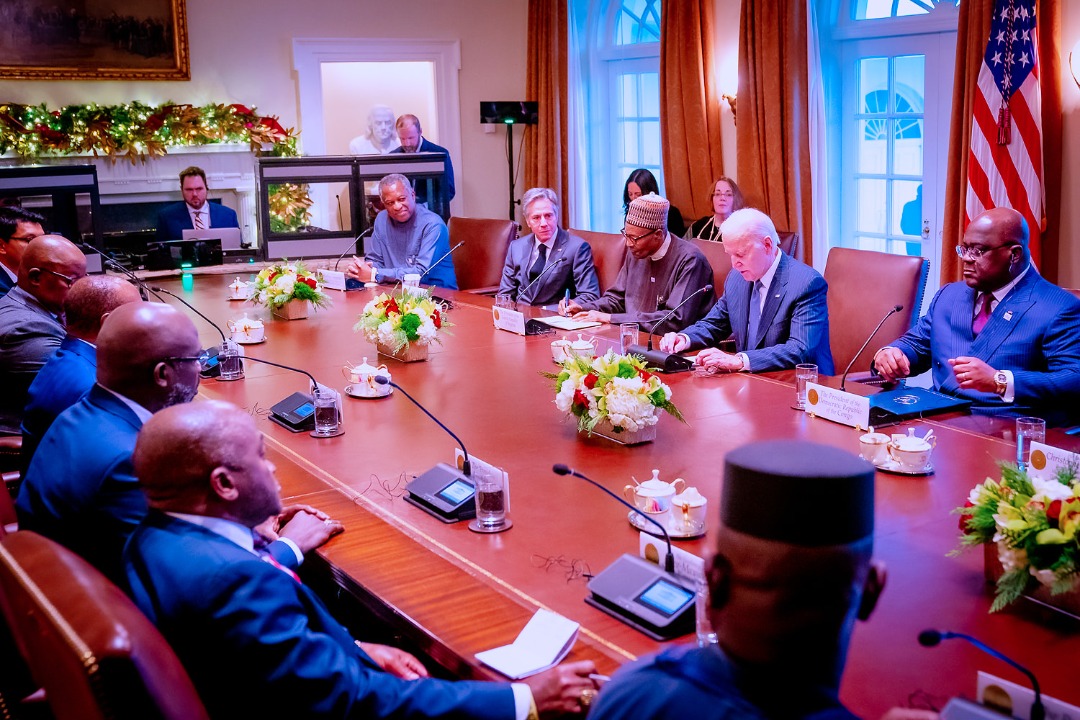Pic.6. A child arranging fire wood on Yakubu Gowon Way in Jos on Tuesday (19/2/19).
01492/19/2/2019/Sunday Adah/JAU/NAN
The recent exchanges between federal and state governments over who to blame for the country’s challenged growth and poverty must not be swept away by our usual casual, resigned attitude to critical national issues. First, President Muhammadu Buhari accused governors of undermining development in their states by misappropriating local government funds. Whatever happened to the move by this same administration to directly send the revenue allocations of the third tier of government to it. Then, it was the turn of the Minister of State for Budget and National Planning, Clement Agba, to lambast the second tier of government for the nation’s whirlwind poverty profile. According to him, the governors have abandoned the large population of rural dwellers to their fate.
The governors promptly picked up the challenge. A statement by the spokesperson of the Nigeria Governors Forum (NGF), Abdulrazaq Bello-Barkindo, is both blunt and combative. It reads in part: “The federal government which is responsible for the security of lives and property has been unable to fulfil this covenant with the people thus allowing bandits, insurgents, and kidnappers to turn the country into a killing field, maiming and abducting people, in schools, market squares and even on their farmlands.
“This dereliction of duty from the centre is the main reason why people have been unable to engage in regular agrarian activity and in commerce. Today, rural areas are insecure, markets are unsafe, and life for the common people generally is harsh and brutish. The question is, how can a defenceless rural population maintain a sustainable lifestyle of peace and harmony when their lives are cut prematurely, and they wallow permanently in danger? How does a minister whose government has been unable to ensure security, law and order have the temerity to blame governors?”
The major problem I have with those questions is that the Nigerian people have for long borne similar ones and many others without the benefit of extracting credible answers from the persons who should know. They have had to carry on with their lives against all sorts of odds, hoping to find rest for their weary souls at a future date, whenever that is. If the shameful drama between these top tiers of government is merely intellectual, it would have made a good topic for schools’ debate. Something like, “I am here to show this distinguished audience that the federal government is responsible for the country’s scandalous standard of living, and not the state governments.” Or vice versa.
Advertisement
But this subject is grave indeed. Nigeria, once a land of opportunities and corporate productivity, now hosts acute lack and grossly reduced chances for individual and national enhancements. This sorry reversal of fortune has produced dire repercussions locally and a despicable image abroad. The green-white-green flag it still maintains has become a misrepresentation. The framers of Nigeria’s nationhood saw a place stupendously endowed, an area that offered so much physical fertility and human energy that they chose that emblem. Decades down the line, however, the nation is witnessing a rapid decline of its fortunes.
With the return to democracy 23 years ago, the people had hoped that their lives would be better positioned to reap the dividends of representative governance, which ordinarily should include affordable access to the essentials of life, including good food, shelter, healthcare, education and gainful jobs. But the stark reality they have continued to face is the steady erosion of their expectations, a situation that deteriorates with each successive administration. This unfortunate free-fall has brought the nation to its present highly despondent conditions. The citizens are roundly overwhelmed by economic and social monsters like food insecurity, hyperinflation, battered currency, mass unemployment and an unsafe atmosphere. People who had never thought it possible to go below a certain line now find themselves swimming against the tide, hundreds of metres under the sea. No hyperbolic allusion intended. The picture is that severe.
I wonder how the relevant official agencies have reacted to the report of the 2022 Multidimensional Poverty Index survey of the National Bureau of Statistics (NBS), a federal government-owned institution. Of Nigeria’s estimated 200 million people,133 million of them, representing over 60 percent, are firmly in the grip of wholesale penury. In that state, otherwise decent human beings with demonstrable capacity for productivity watch their sense of dignity drain away. Common responsibilities assume intimidating statures. Average meals that should be taken for granted have become fervent prayer points. Other visceral items that normally occupy the lowest rung of the ladder of needs are forcing their way up and crowding out more elevated cravings. We have arrived at a point where we must remove the veil and concede that many Nigerians do not operate too far from the animal kingdom.
Advertisement
Yes, jungle existence is here already; didn’t arrive at this mark suddenly, though. For us as a country, it has been a predictable walk to deprivation and ruin. A needless journey led by short-sighted leaderships and followed by largely unquestioning, I dare say docile, populace effectively robbed of the will to demand their basic rights, justice and equity.
Of what practical use is this quarrel between the executive arms at the national and state levels? None, in my view. This era, more than the ones before it, has midwifed very damning human-condition statistics. Now, at the tip of the sojourn in their various positions, in their lame-duck postures, and weeks to the elections that will see them off the saddle, they have the audacity to argue among themselves about who is responsible for the abject plight of the masses. The exercise lacks sincerity, to put it mildly. I won’t hesitate to draw a comparison with dancing on the grave of one’s victims. Not few people believe that most politicians work without the conscience they entered the world with, a vital faculty long replaced with avarice, self-worship and outright wickedness, and are, therefore, not surprised by their theatrics.
The hard truth about the accusations and counter finger-pointing is that they are all correct. Abuja cannot distance itself from issues relating to security of lives and property, formulation and monitoring of enabling poverty reduction policies and the overall creation of an environment conducive for exiting dejection and squalid living. Whatever the tangible achievements of, say, the ministries of humanitarian duties, labour, employment, agriculture are, they haven’t registered in the minds of most people. Neither can the governors deny that the resources at their disposal may truly have been broadly mismanaged. I can’t think of any state legislature today that is not in the pocket of the state chief executives. Those who control local government funds are also public knowledge. What else do they require to pull the citizenry out of perennial destitution?
Curiously, most of these political office holders have visited countries like China and India which are far more populated than Nigeria and had worse records until their leaders rose to the occasion with winnable programmes and projects that drastically altered the courses of their territories. In just 15 years beginning from 2006, India succeeded in rescuing over 400 million of its people from indigence. It means that within the period, the poverty figures reduced from 55 to 16 percent. Unfortunately, since Nigeria dethroned that country four years ago as the residence of the planet’s poorest people, there are no signs of recovery whatsoever.
Advertisement
It is unjust for political leaders, most of whom are in the process of serving out two underperforming terms, to, despite the burden of weak accountability, tease Nigerians about their protracted problems. Posterity still matters in the affairs of rulers.
Ekpe, PhD, is a member of THISDAY Editorial Board.
Views expressed by contributors are strictly personal and not of TheCable.
Add a comment
